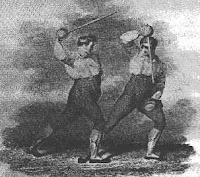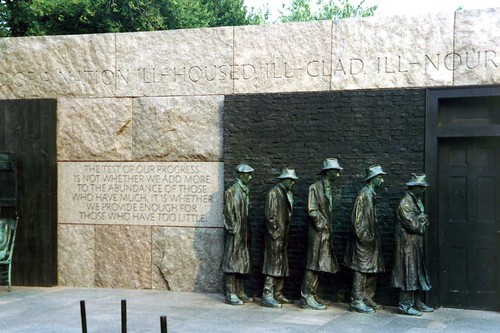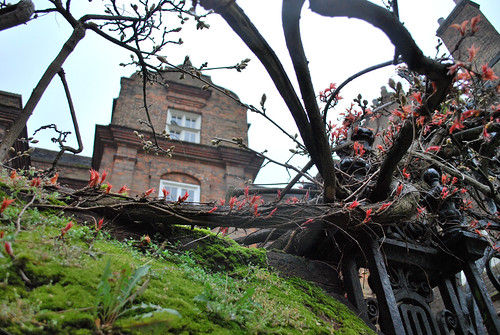
No time for a proper post this weekend, but I did want to at least follow up Maggie's guest post on Thomas Hughes's charming Victorian boys' novel Tom Brown's Schooldays (1857) with details of one of the games played at fair time by people in young Master Tom's village:
We are easily pleased in the Vale. Now there is a rush of the crowd, and a tinkling bell is heard, and shouts of laughter; and Master Tom mounts on Benjy's shoulders, and beholds a jingling match in all its glory. The games are begun, and this is the opening of them. It is a quaint game, immensely amusing to look at; and as I don t know whether it is used in your counties, I had better describe it. A large roped ring is made, into which are introduced a dozen or so of big boys and young men who mean to play; these are carefully blinded and turned loose into the ring, and then a man is introduced not blindfolded, with a bell hung round his neck and his two hands tied behind him. Of course, every time he moves the bell must ring, as he has no hand to hold it, and so the dozen blindfolded men have to catch him. This they cannot always manage if he is a lively fellow, but half of them always rush into the arms of the other half, or drive their heads together, or tumble over; and then the crowd laughs vehemently, and invents nicknames for them on the spur of the moment, and they, if they be choleric, tear off the handkerchiefs which blind them, and not unfrequently pitch into one another, each thinking that the other must have run against him on purpose. It is great fun to look at a jingling match certainly.Jingling sounds far less dangerous than the back-swording {pictured above} that Maggie described in her post, but it would nonetheless seem to offer plenty of those opportunities for violence that seem to have long been a part of the English sense of fun. I wonder if Ye Olde Ren Faire participants keep it alive?






